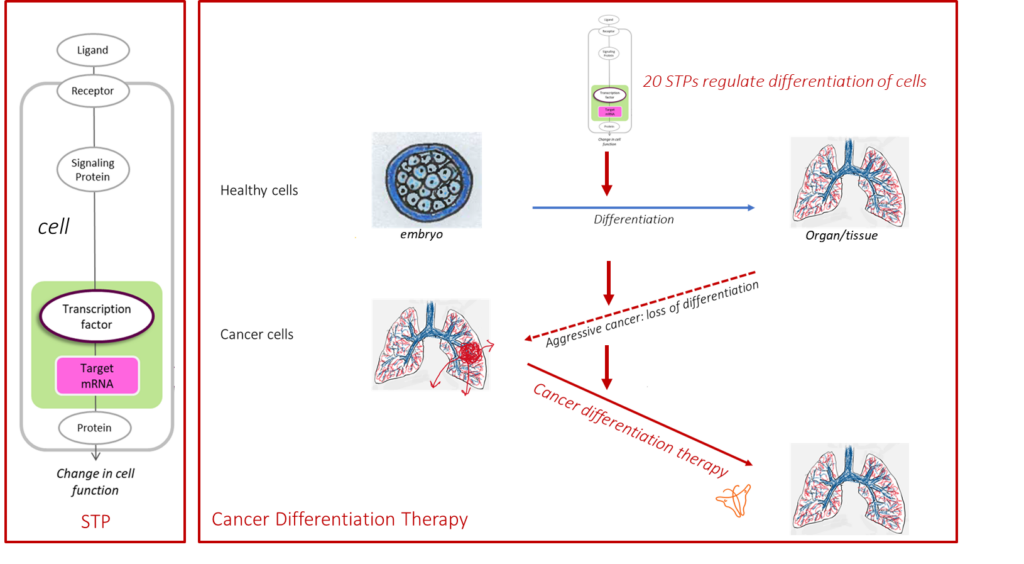Metamorphosis-Tx

Cancer Differentiation Therapy
Mission Statement
Curative therapy for the most aggressive cancer types, including pediatric cancer.
Our unique approach
Development of cancer differentiation therapy requires a technology to measure the cellular processes (Signal Transduction Pathways) that control differentiation.
With STAP-STP technology, for the first time, activity of all relevant Signal Transduction Pathways can be measured in any cell or tissue sample. This provides completely novel and in depth understanding of the differentiation process. It enables steering and monitoring cancer cell differentiation in the lab, use of patient-representative cancer models, and precision treatment.
Cancer differentiation therapy, simplified
Cancer differentiation therapy is potentially curative, and synergistic with cancer immunotherapy.

In aggressive cancer, cancer cells are undifferentiated similar to cells in an embryo. Embryonic cells proliferate and migrate, and finally differentiate to form organs and tissues. Differentiated cells do not migrate or proliferate any more.
Cancer differentiation therapy aims at mimicking the natural differentiation process that occurs in the embryo.
Cancer differentiation therapy forces cancer cells to differentiate. If successful, cells stop migrating (metastasis) and proliferating, and are killed by the immune system. The patient is cured.
Examples exist of malignant tumors in young children that spontaneously differentiate resulting in curation. A previously highly lethal type of blood cancer, Acute Promyelocytic Leukemia (APL), can nowadays be cured with a combination of two drugs that induce cell differentiation.
Signal Transduction Pathways (STPs) regulate differentiation. Development of differentiation therapy requires measurement of STP activity.
STAP-STP technology enables for the first time simultaneous and quantitative measurement of STP activity in any cell or tissue sample, inferred from RNA expression data. Drugs act via changing STP activity.
We use STAP-STP technology to investigate efficacy of drugs and compounds to change STP activity, inducing cancer differentiation.
Therapies are patented in combination with a companion diagnostic test for precision cancer treatment.
Current status
Preliminary results for glioblastoma, and aggressive breast (collaboration Stanford University) and ovarian cancer.
First patent application in progress.
